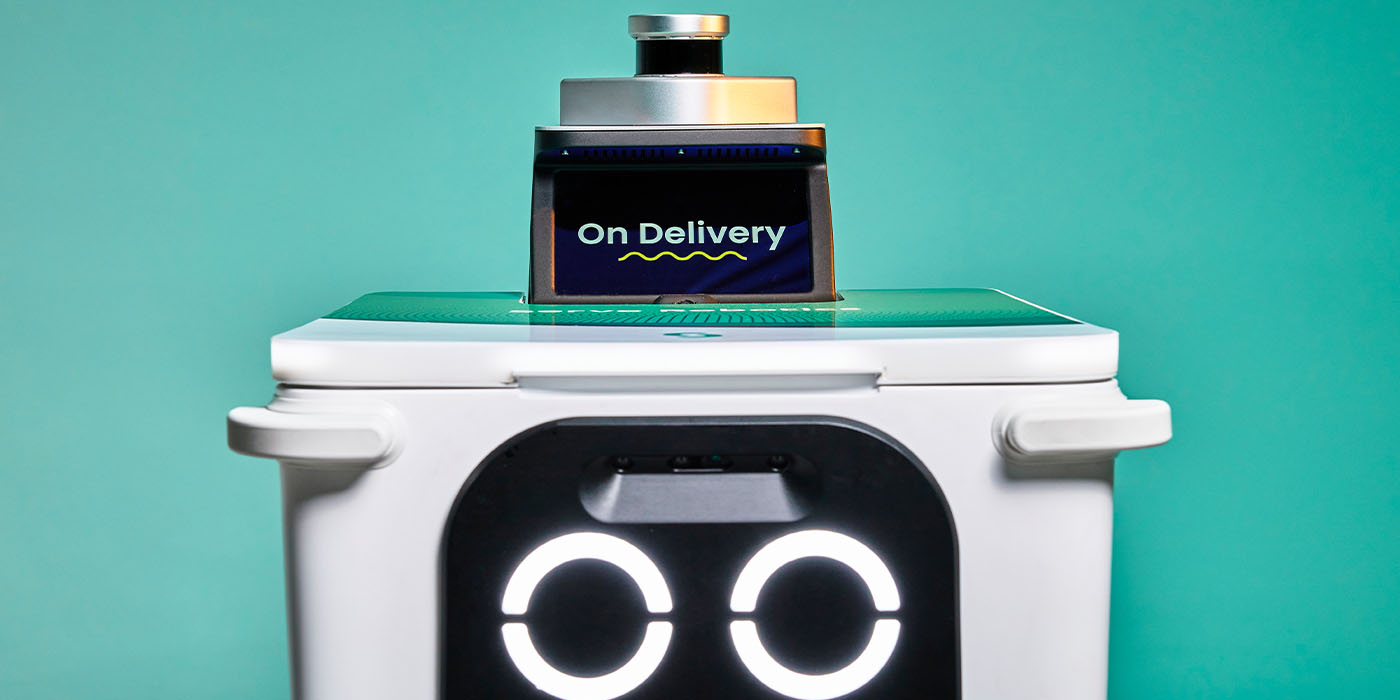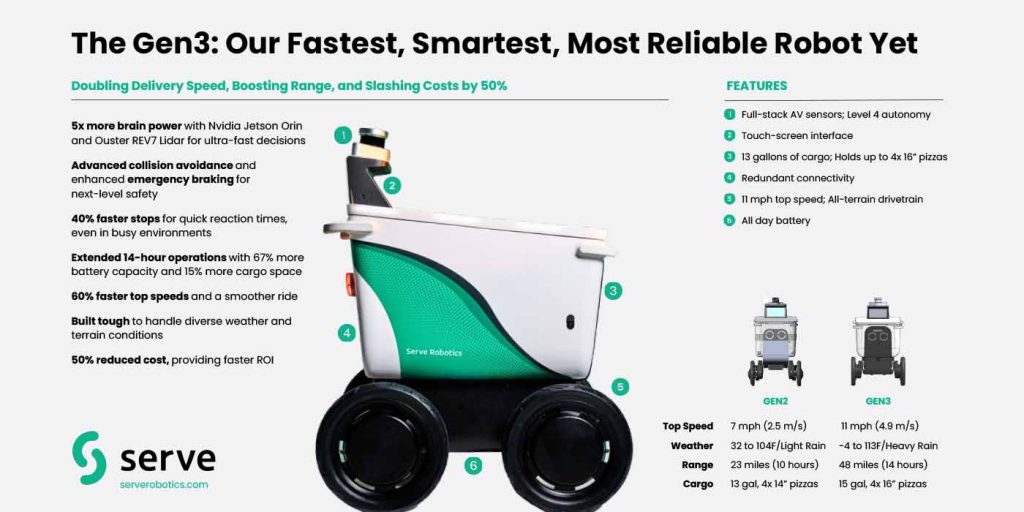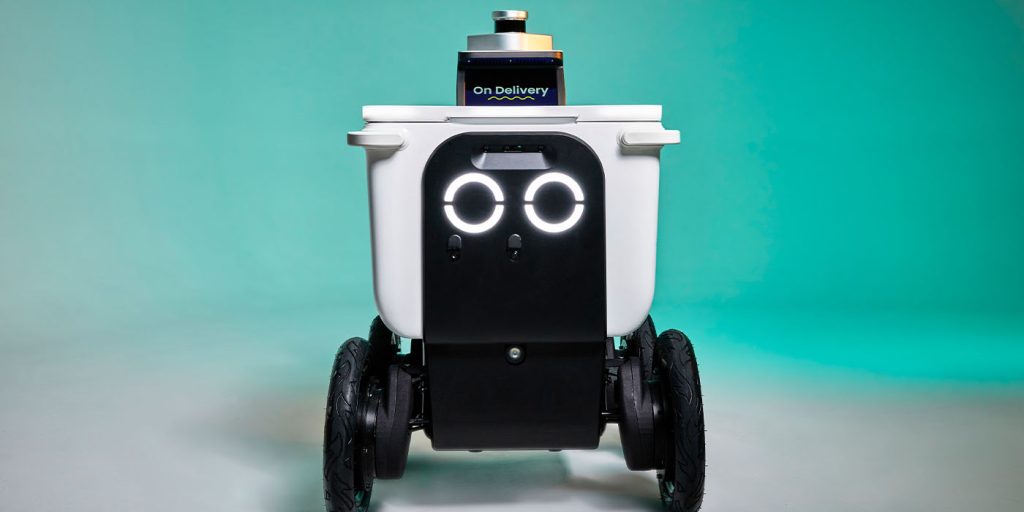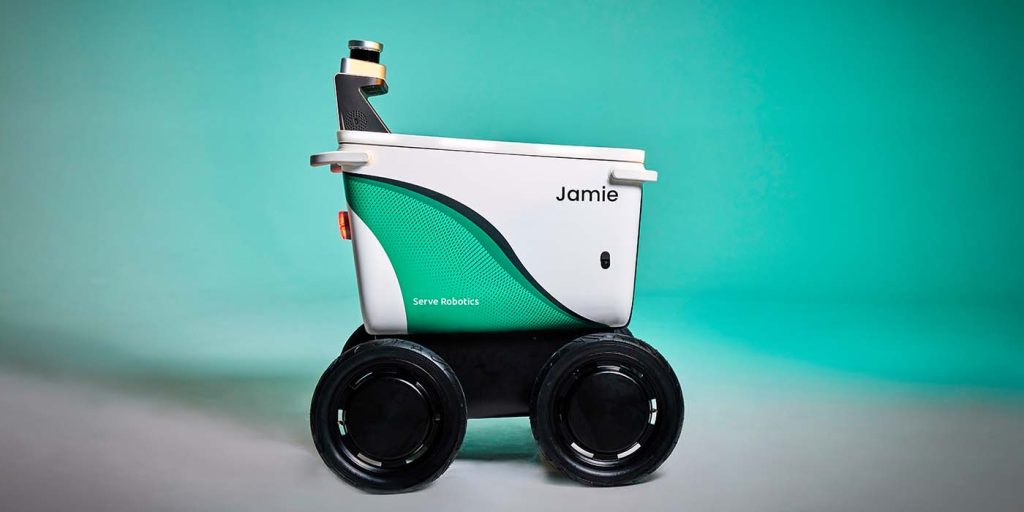
Autonomous sidewalk delivery specialist Serve Robotics has just unveiled its third generation of robots that are faster, smarter, tougher, and a fraction of the cost to manufacture. With production now underway, Serve looks to deploy these upgraded delivery robots soon as a critical component in its plans to expand its services across the entire United States.
Serve Robotics ($SERV) is a developer of autonomous AI-powered sidewalk delivery robots spun out as an independent company from Uber in 2021. Investors include NVIDIA, 7-Eleven, and Uber Eats, which partnered with its former entity to begin offering autonomous robot deliveries to select customers around Los Angeles.
That initial 2022 transaction included the deployment of up to 2,000 delivery robots before Serve Robotics expanded its relationship with Uber Eats by signing a deal with Shake Shack to offer select customers in Los Angeles robot deliveries.
Most recently, Serve’s Gen2 robots have been deployed for testing with drone delivery operator Wing to explore autonomous robot-to-drone deliveries. According to the partners, Wing deliveries will be able to be picked up by a Serve delivery robot from the curb or sidewalk in front of a participating restaurant, then delivered autonomously to a Wing drone AutoLoader nearby before it is delivered by air to customers as far as 6 miles away.
While Serve explores air deliveries with Wing, it has also kept a keen focus on what it knows best—autonomous sidewalk deliveries. Today, the company unveiled its Gen3 delivery robot, which has seen some major improvements inside and out.
Serve’s Gen3 delivery robots are smarter, faster, and cheaper
According to details shared by Serve Robotics today, its next generation of autonomous sidewalk robots has seen a complete overhaul in nearly every category, all for the better. For instance, its cargo space gained 2 gallons (+15%) of additional volume and can now transport four 16-inch pizzas.
The new delivery robot also saw a 67% increase in battery capacity, boosting its all-electric range from 23 miles (10 hours) in Gen2 to 48 miles (14 hours) in the Gen3 model. The exterior was bolstered to support more inclement weather ranging from -4 to 113℉ and heavy rain, and its new suspension offers a smooth ride to keep hot meals safer in transit.
The all-terrain drivetrain also saw improvements, bringing the delivery robot’s top speed up from 7mph to 11mph (+60%), with the ability to stop 40%more quickly. Improved sidewalk safety is also the result of quicker reaction times and ultra-fast decisions, thanks to the Gen3 robot’s major sensor suite upgrades, including an NVIDIA Jetson Orin chip and Ouster REV7 digital LiDAR.
All of the improvements are impressive in their own right, but the most newsworthy aspect of Serve’s Gen3 robot debut is arguably the fact that it implemented all these upgrades while cutting manufacturing costs in half. Serve Robotics co-founder and CEO Dr. Ali Kashani elaborated:
Producing a cutting-edge robot that can drive faster and further while running 5 times more AI and slashing costs by half is a true engineering feat. I am proud of what our team has accomplished with our third-generation robot, which represents the culmination of years of relentless effort. Our new robot puts Serve significantly down the cost curve and ahead of the competition as we roll out one of the largest autonomous fleets in the country in the coming months.
Serve shared that Gen3 robots are already being assembled in North America with the help of contract manufacturer Magna International. The initial rollout will include 2,000 autonomous robots to new cities in 2025 through Serve’s continued partnership with Uber Eats. That will begin in Los Angeles and “one new metro market” that has yet to be shared, but Serve intends to continue to expand its fleet of delivery robots across the entire US someday.
You can see more of the Gen3 robot in Serve’s video below:



